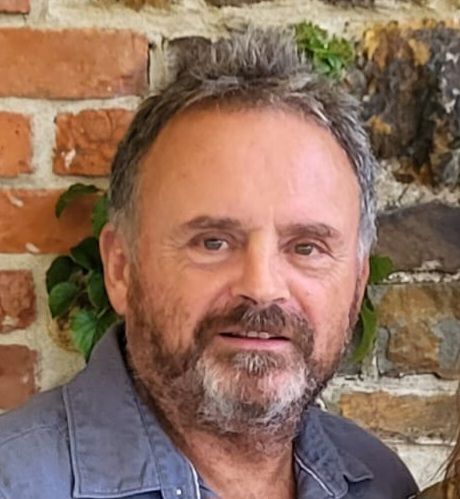
Online course: Working Therapeutically with Clients with a Psychiatric Diagnosis
An online course for mental health professionals
Price listed above is the course price is £95 Sterling, or equivalent in other currencies.
Who this course is for:
Testimonials:
Marie: 'I experienced the material presented to be thorough an extensively researched through the lens of both medicine and psychotherapy. I have gained knowledge and deeper insight into mental illness in the case studies presented as well as highlighting the healing that comes through the therapeutic relationship. I will reference the content of the course again and when the need arises'.
Michael: 'Many thanks for a most enlightening course'.
Mary: 'I’m finding the course excellent, very informative& practical. Exactly what I hoped for!
Nicole: 'I am really enjoying the content'
Victoria: 'I am still enjoying the course very much. I find it very engaging'.
Deborah: "I have found the course very useful and informative. It has given me ideas on how I work with clients, although I have over the last few years I have come to my own understanding of how trauma and challenge in people lives thwarts a healthy sense of self and emotional awareness and regulation. I have long since moved away from the medical model and prefer to support people in their humanity’. Your course has highlighted and reinforced this to me and to be more aligned with my views even though these often go against mainstream opinion including some of those in the mental health professions. Thank you."
Swee Eng: "The information given is so helpful".
Margaret: "I am learning so much from your course, thank you. So much of what you are saying I have thought but dismissed as lack of knowledge on my part. I am overwhelmed and shaking from what I have learned, and thirty years in the dark. I now see a chink of light."
Maria: "This is a very interesting case study" (in relation to one of the many case studies included in this course).
Wanda: "The importance of agency and self-efficacy makes me think of a young client I work with who is v low on both and v depressed. I would love to see an integrated set of services for young people whereby they are assisted in developing their talents or capacity "to do" (manage life) in addition to therapy".
Anne: "Thank you for your valuable presentations and research Terry".
Eileen: "I'm fine with ground rules. I'm pleased to see them, they're important."
The purpose of this course is to provide mental health professionals with a comprehensive understanding of the various psychiatric diagnoses. Doing so will enhance the understanding, confidence and skills of mental health professionals who work with - or would be interested in working with - people who have received a psychiatric diagnosis.
About this course:
By participating in this course, you will come to develop a deep understanding of the experiences and behaviours that come to be diagnosed as various mental illnesses.
Diagnoses covered include depression; general anxiety disorder; bipolar disorder; schizophrenia; obsessive-compulsive disorder (OCD); eating disorders; personality disorders; schizo-affective disorder. Suicide will also be addressed within this course.
You can expect to develop a comprehensive understanding of these diagnoses, an understanding that will facilitate you to maximise your current skills, training and experience. You will also learn new skills that will help you in your work as a mental health professional.
Course curriculum:
The course curriculum - the material currently added to the course - is listed towards the end of this page.
Continuing Professional Development (CPD):
20-plus CPD hours as of end January 2019. Further material added regularly over the next 12 months.
Certificate of Completion:
Issued when required. Progress through the course is measured, and Certificates of Completion are issued as required for CPD purposes. A final Certificate of Completion is issued upon completion of the course.
Guarantee:
Full 30-day money-back no quibble guarantee applies.
Deficits in mental health training in relation to the psychiatric diagnoses:
Many people people who have been given a psychiatric diagnosis could benefit from working with mental health professionals who truly understand the nature of the experiences and behaviours that collectively come to be defined as various psychiatric diagnoses.
The current situation, within which people who receive a psychiatric diagnosis are considered to require primarily - and often solely - medical expertise and intervention, diminishes their opportunities towards living more effective and meaningful lives.
Having researched this, it appears to me that, in general, the training of mental health professionals is lacking in many areas. Consequently, many mental health professionals - including psychologists, psychotherapists, counsellors, nurses, social workers, occupational therapists, social care workers - feel unsure and unclear regarding the role - if any - they can play regarding people who have been given a psychiatric diagnosis.
Doctors too - psychiatrists and GPs - could learn a considerable amount by expanding their horizons of understanding - in particular, by increasing their consideration of the emotional and psychological aspects of the experiences and behaviours of the people they diagnose with various psychiatric diagnoses.
Psychiatric diagnoses are common occurrences:
According to statistics from authoritative sources, up to 50% of people will receive a psychiatric diagnosis at some stage of their lives. That is a lot of people, people who could benefit from a more holistic understanding and service than is currently to case.
How the course works:
There are over 20 hours of audio-visual presentations within the course material.
Pdfs of the Powerpoints used to create these presentations - including all references - are also included.
The primary format of the course material is audio-visual. Where appropriate, slides used in presentations will also be made available to you.
Once registered, you can access the course material online whenever you wish.
You can be in contact with me as much or as little as you like, through the comments sections within module, or by email.
Your Instructor

Terry's own life experiences and his life as a mental health activist, medical doctor, psychotherapist and mental health author have brought him to a level of understanding of mental health that is unusual if not indeed exceptional.
Terry Lynch has played a prominent role in mental health both nationally and internationally. For a nine-year period, he was appointed by the Irish Department of Health and Children to key national mental health groups - The Expert Group on Mental health Policy (2003-6) which formulated A Vision for Change, Ireland’s official mental health policy document; The Independent Monitoring Group for A Vision for Change (2006-9); the Second Monitoring Group for A Vision for Change (2009-12).
Terry Lynch was the only mental health professional to be appointed to the three Groups named above. In addition, he was also appointed by the CEO of the Irish Health Service Executive (HSE) to the Irish Health Service Executive's Mental Health Expert Advisory Group (2006-8).
Terry is the author of 4 books: Prescribed Drug Dependence (Kindle, 2018); Depression Delusion Volume One: The Myth of the Brain Chemical Imbalance (2015); Selfhood: A Key to the Recovery of Emotional Wellbeing, Mental Health and the Prevention of Mental Health Problems, (2011); and best-seller Beyond Prozac: Healing Mental Distress (2004).
He has appeared regularly in the national media in Ireland and beyond.




Course Curriculum
-
StartSome "ground rules"
-
StartAgency, self-efficacy and the psychiatric diagnoses (12 min 08 sec) (12:08)
-
StartThe context of this course (17 min 18 sec) (17:18)
-
StartCase study 1: Making sense of generalised anxiety disorder; OCD; depression; anorexia; social phobia (1 hr 05 min 29 sec - seven presentations) (65:41)
-
StartFinding meaning in what appears to be meaningless. Client K.K. (26 min 35 sec) (26:36)
-
StartTrauma, loss, depression: Client D.D. (35:48)
-
StartUnderstanding psychiatric diagnoses, 1 - the GP's role; depression (13 min 31 sec) (13:31)
-
StartUnderstanding psychiatric diagnoses, 2 -antidepressants: how they work, their effects (11 min 33 sec) (11:33)
-
StartUnderstanding psychiatric diagnoses, 3 - Coming off antidepressants - relevance to therapy work (4 mins 50 sec) (4:50)
-
StartUnderstanding psychiatric diagnoses, 4 - Depression, therapy, NICE depression best practice guidelines (13 min 08 sec) (13:08)
-
StartUnderstanding psychiatric diagnoses - 5 - more on the NICE depression guidelines, medical view of best practice, the role of therapy (9 min 37 sec) (9:37)
-
StartDepression case study - Client L.L. (93:13)
-
StartBipolar disorder, prevailing view, summary (6:04)
-
StartMood disorders, the medical understanding: an overview (14 min 30 sec) (14:30)
-
StartBipolar disorder: The prevailing medical view (22 min 24 sec) (22:24)
-
StartBipolar disorder, symptoms, the medical view (4 min 09 sec) (4:09)
-
StartBipolar disorders, types, medical view (7 min 19 sec) (7:19)
-
StartThe "in between" state -the state between episodes (22 min 13 sec) (22:13)
-
StartBipolar disorder, critique, brain disorder (14 min 53 sec) (14:53)
-
StartBipolar disorder, critique, symptoms (9 min 51 sec) (9:51)
-
StartBipolar disorder, critique, types (7 min 37 sec) (7:37)
-
StartBipolar disorder, critique, genetics (33 min 33 sec ) (33:33)
-
StartBipolar disorder: Is a recovery orientation appropriate? 12 min 23 sec (12:34)
-
StartBipolar disorder, recovery, Dr. Liz Miller (18 mins 47 sec) (18:47)
-
StartMaking sense of manic episodes (six presentations) (90:26)
-
StartMaking sense of grandiose ideation (15 min 36 sec) (15:36)